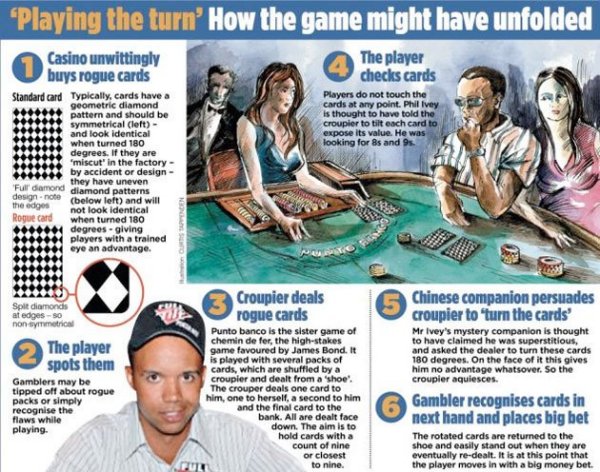Borgata Edge Sorting Lawsuit Against Phil Ivey to Proceed into Discovery Phase

 A federal judge has denied poker pro Phil Ivey‘s motion to dismiss a lawsuit levied against himby Marina District Development Co., LLC, parent of the Borgata Hotel Casino & Spa, in conjunction with Ivey’s use of “edge-sorting” to win nearly $10 million at the casino in 2012. The case will now proceed into the discovery phase.
A federal judge has denied poker pro Phil Ivey‘s motion to dismiss a lawsuit levied against himby Marina District Development Co., LLC, parent of the Borgata Hotel Casino & Spa, in conjunction with Ivey’s use of “edge-sorting” to win nearly $10 million at the casino in 2012. The case will now proceed into the discovery phase.
In April 2012, Borgata filed its lawsuit in United States District Court for the District of New Jersey against Ivey (pictured) and his female companion, Cheng Yin Sun, accusing them of number of crimes including Breach of Contract, Breach of Implied Contract, Breach of Implied Covenant of Good Faith and Fair Dealing, Fraudulent Inducement, and Fraud.
The company also sued playing card manufacturer Gemaco on six counts, including Breach of Contract and Negligence. Ivey and his attorneys filed a motion to dismissin July, a motion which Judge Noel L Hillman has now denied.
The case stems back to April 2012 when Phil Ivey called Borgata, telling them he was planning on playing there and asked for special arrangements to be made for high-stakes baccarat sessions. According to Borgata, the special requests were made under the pretense of superstition.
Ivey requested a private gaming area, a dealer who spoke Mandarin Chinese, permission to have a companion sitting with him, an automatic card shuffler, and an eight-deck shoe specifically composed of purple Gemaco playing cards. Wanting a whale’s business, Borgata agreed to Ivey’s requests and the maximum bet was set at $50,000. Ivey deposited $1 million with the casino in advance of his trip to Atlantic City.
Borgata alleged in its lawsuit – and Ivey has since admitted as much – that Ivey’s requests were all a part of a plan to work the game to his advantage. Normally, the backs of cards have a symmetrical pattern; when face down, they appear the same no matter how a card is oriented. But Ivey knew those specific Gemaco cards were mis-cut, creating an asymmetrical pattern and giving him an advantage.
In a statement, Judge Hillman wrote, that “Borgata has pled plausible claims sounding in fraud” and is allowing the case to move on to discovery. Discovery is a pre-trial phase in which the opposing sides exchange information about evidence and witnesses they intend to use in court. It is designed to avoid, as the American Bar Association puts it, “trial by ambush.”
We’ll keep you posted on the latest. In the meantime, here’s a look at the edge-sorting process:

 Ivey cleaned up. On April 11, 2012, he won $2.4 million, then returned in May with the same conditions and won another $1.6 million. In July, he changed the terms slightly, getting Borgata to double the maximum bet. He then proceeded to win $4.7 million at baccarat. In October, he returned for one more go at it, winning $825,000.
Ivey cleaned up. On April 11, 2012, he won $2.4 million, then returned in May with the same conditions and won another $1.6 million. In July, he changed the terms slightly, getting Borgata to double the maximum bet. He then proceeded to win $4.7 million at baccarat. In October, he returned for one more go at it, winning $825,000.



